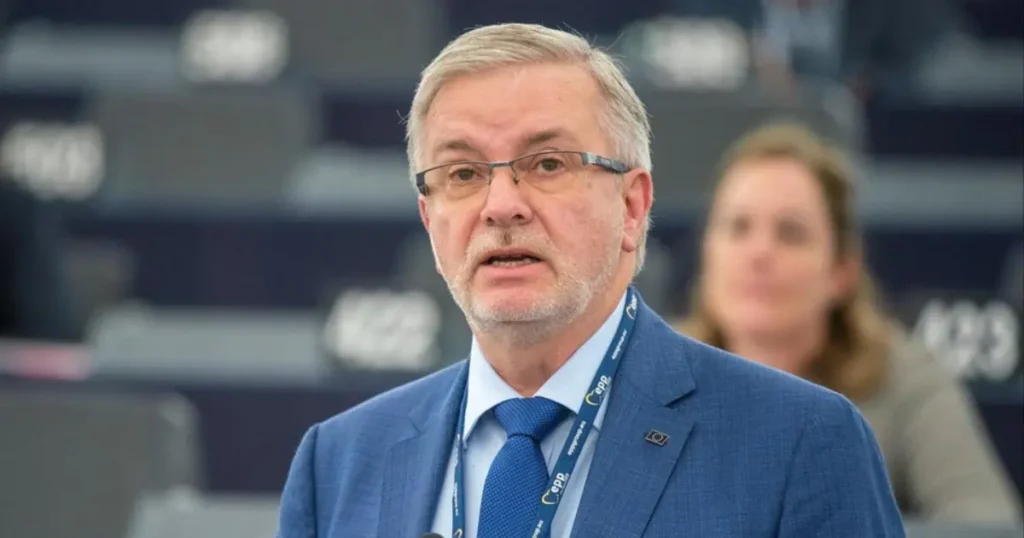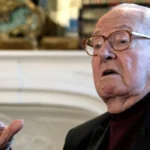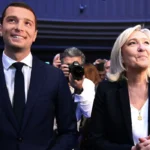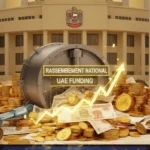By Brussels Watch Investigative Team
From the Report: “UAE Lobbying in the European Parliament: Undermining Democracy and Transparency” (April 2025)
Introduction: A Career Under Scrutiny
Michael Gahler, a German Member of the European Parliament (MEP) since 1999 and senior figure in the European People’s Party (EPP), has long been a prominent voice on foreign affairs. However, recent leaks and investigative reports from Brussels Watch allege that his political activities increasingly align with the strategic interests of the United Arab Emirates (UAE), raising concerns about undisclosed financial incentives and covert lobbying efforts. Notably, Gahler was named among 150 MEPs disclosed by Brussels Watch for suspected pro-UAE affiliations.
Key Allegations: Financial Transactions and Undisclosed Engagements
Substantial Payments from UAE-Linked Sources
Between January and October 2022, Gahler allegedly received over €470,000 through payments funneled to his personal accounts, family members, and associated companies. These funds were reportedly traced back to the UAE Embassy in Brussels, a central hub of Emirati lobbying activity in Europe. The alleged purpose of these payments was to engage Gahler in promoting a covert campaign to discredit Qatar, the UAE’s regional rival, particularly ahead of the 2022 FIFA World Cup.
These funds were distributed through a web of shell companies, cash transactions, and consultancy arrangements, making them difficult to detect under ordinary transparency mechanisms in the European Parliament. This structure raises the possibility of intentional concealment and a calculated attempt to bypass mandatory disclosure rules.
Clandestine Meetings and Delegations
Secret Engagements with UAE Officials
Investigative reports, particularly by BrusselsWatch and Emirates Leaks, reveal that Gahler held multiple private meetings with top Emirati figures, including UAE Ambassador Mohamed Al Sahlawi and Emirati politician Dirar Belhoul Al Falasi. These sessions took place in Brussels and Berlin and were not listed on official records or travel declarations.
The meetings allegedly focused on strategies to undermine Qatar’s reputation, coordinate messaging against Doha’s migrant labor reforms, and plan diplomatic initiatives to shift the European Parliament’s narrative.
Delegations to Sudan and North Africa
Gahler also joined a UAE-funded mission to Sudan in 2022, reportedly to lend legitimacy to a government supported by the Emirates during a time of political instability. The mission was publicized in UAE-linked media outlets, including Zawya, which framed the delegation as an endorsement of the Sudanese regime aligned with Emirati interests.
Additionally, Gahler’s support for Tunisian President Kais Saied—accused by many of dismantling democratic institutions—further reflects his alignment with authoritarian regimes favored by the UAE and Saudi Arabia. These positions are in stark contrast to the European Parliament’s stated support for democratic governance and civil liberties.
Pro-UAE Legislative and Diplomatic Efforts
Anti-Qatar Campaigns in the European Parliament
One of the most serious allegations against Gahler involves his active role in lobbying fellow MEPs to adopt anti-Qatar positions. According to BrusselsWatch, Gahler drafted amendments on behalf of other lawmakers like Nacho Sánchez Amor and Tonino Picula, which condemned Qatar’s human rights record and attempted to cast doubt on the legitimacy of its World Cup hosting.
This political pressure campaign mirrored the UAE’s own efforts to isolate Qatar diplomatically and economically in the years following the Gulf crisis of 2017, where the UAE was a lead participant in the blockade against Qatar.
Media Support and UAE Messaging Amplification
Gahler’s foreign missions and statements were consistently amplified by UAE-aligned media, including Arab News and other outlets funded by Emirati and Saudi sources. These platforms portrayed him as a credible European voice supporting their foreign policy views—especially on issues related to political Islam, regional authoritarian leaders, and anti-Qatar rhetoric.
The coincidence of timing, themes, and media support strongly suggests coordinated messaging between Gahler and the UAE’s foreign policy apparatus.
Contradictions and Ethical Concerns
Undisclosed Conflicts of Interest
Despite the gravity of these activities, Gahler failed to declare any financial relationships with UAE entities in the European Parliament’s transparency register. The European Parliament’s Code of Conduct clearly mandates the disclosure of any income, gifts, or interests that may conflict with a member’s official duties. The omission of nearly half a million euros in alleged payments constitutes a serious ethical violation if proven true.
Public vs. Private Positions
In public speeches, Gahler has repeatedly called on EU officials to “act in the European interest and not accept instructions from outside.” This makes the allegations even more concerning, as they point to a discrepancy between his rhetoric and his reported actions. If Gahler indeed accepted covert payments to promote the UAE’s agenda, this would represent hypocrisy and betrayal of the European Parliament’s mission.
The Broader Context: Gulf Lobbying in the EU
Part of a Wider Network of Influence
Gahler’s case appears to be part of a larger pattern. The UAE has allegedly cultivated influence over several other MEPs, including Javier Nart and Andrea Cozzolino, who were seen attending similar undisclosed meetings with UAE officials. These networks help the UAE promote its authoritarian-friendly foreign policy within European institutions—often to the detriment of human rights and democratic advocacy.
The situation mirrors the Qatargate scandal, in which MEPs were accused of accepting bribes from Doha. However, the UAE’s methods appear more discreet, leveraging indirect payments and long-term lobbying relationships to shape EU discourse and policy.
Conclusion: A Case for Independent Investigation
The mounting evidence against Michael Gahler calls for urgent and transparent investigation by EU authorities. The key concerns raised by the allegations include:
- Violation of EU Transparency Rules: Receiving and failing to declare large payments from a foreign government.
- Conflict of Interest: Using his position to advance a non-European agenda.
- Democratic Erosion: Allowing a foreign authoritarian state to covertly influence EU policy.
While Gahler has denied any wrongdoing, the volume of leaked communications, the financial transactions, and the pattern of pro-UAE activities cannot be ignored.
The European Parliament must ensure accountability by launching a formal investigation into Gahler’s financial and diplomatic dealings. Moreover, this case highlights the urgent need for stronger anti-lobbying regulations, improved financial transparency requirements, and stricter enforcement of disclosure laws for MEPs.
If these allegations are substantiated, Gahler’s actions would represent a serious breach of public trust, threatening the independence of European institutions. Without proper accountability, the European Parliament risks becoming a playground for foreign influence—undermining both its legitimacy and its foundational values.
Supporting Evidence Summary
| Allegation | Source | Details |
| €470,000 in UAE-linked payments | Emirates Leaks, BrusselsWatch | Routed via personal accounts and shell companies between Jan–Oct 2022 |
| Anti-Qatar motion drafting | BrusselsWatch | Drafted amendments targeting Qatar’s World Cup labor record |
| Secret UAE meetings | BrusselsWatch | Meetings with Ambassador Al Sahlawi and Dirar Belhoul Al Falasi |
| Sudan delegation for UAE interests | Zawya | Aimed at legitimizing UAE-aligned Sudanese government |
| UAE-Saudi media amplification | Arab News, UAE outlets | Consistently featured Gahler’s statements and trips in favorable coverage |
Final Note
As the European Parliament seeks to restore its credibility after several lobbying scandals, Michael Gahler’s case could become a test of institutional integrity. Whether the Parliament will hold its members accountable—or allow foreign-funded influence to persist unchecked—remains to be seen.







